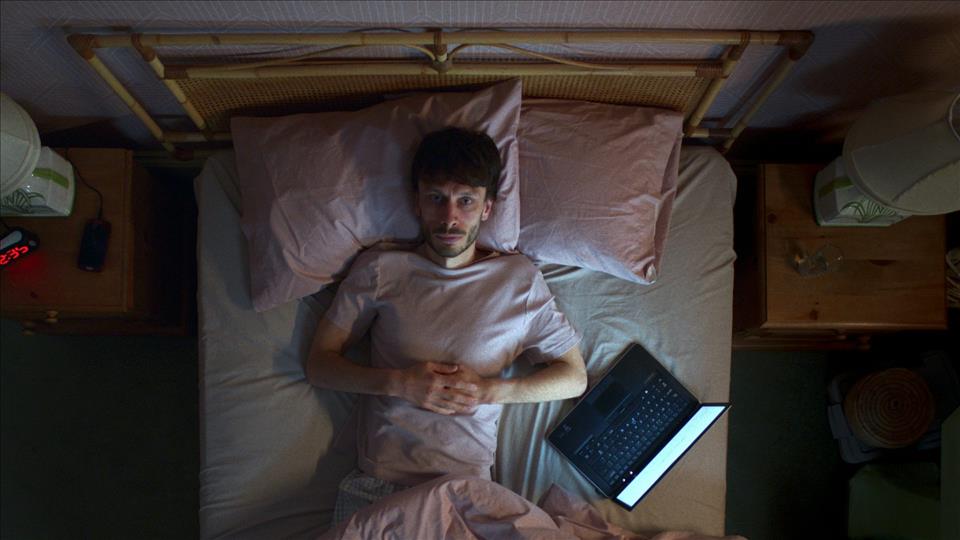
The Evolution Of Male Mental Health In Television
In the last few years in the UK and the US, male-centred shows such as The Bear (2022-), Ted Lasso (2020-), Barry (2018-23), The Boys (2019-26), Succession (2018-23), Baby Reindeer (2024) and Slow Horses (2022-) have been hugely popular. It is telling that of these series, at least four explicitly deal with male mental illness.
While researching my new book, Male Mental Illness in Contemporary Culture (due out late 2025), I found that male mental illness is made much more explicit within the comedy genre, particularly in the UK.
For series in the US, male mental illness is more often used as a plot device rather than being the focus of the story itself. And even then, it may reinforce stereotypes. For example, the Netflix show Unstable (2023) focuses on Ellis (Rob Lowe) and his mental breakdown following the death of his wife. Very often his mental health struggle is presented as eccentricity and oddness, giving him an excuse to behave strangely rather than dealing with his experience.
The trailer for Unstable.
These stereotypes emerge from the dynamics of the television industry, particularly in the US. Men historically outnumbered women in the industry three to one in US-produced television. Despite this improving in recent years to women taking 43% of the roles onscreen in US television, traces of the past remain. Much of the research focuses on US examples, with a gap around how men onscreen are presented in the UK.
With the overrepresentation of men, it might be assumed there is more variety of masculinity onscreen. However, research in 2017 into the depiction of men onscreen in the US has shown men often upholding old-fashioned ideals of masculinity, noting that the men on our screens are“likely to be shown as dominant and in the prime of their lives”.
For mental health and mental illness, this has an impact. Men's expected roles in society conflict with their experience of mental illness.
Differences between culturesThere appears to be a difference in UK and US portrayals. In the US, recent series that are categorised as“about mental health” include Apple TV+'s Shrinking (from the team involved with Ted Lasso, another series that engages with male mental health) as well as Unstable.
While these shows are based on the idea of the central male protagonist struggling mentally, this is due to grief from the loss of their spouses. Their struggles are mainly communicated through eccentric behaviour, rather than engaging with their emotions.
By contrast, recent UK series that have explored male mental health and illness – still in the vein of comedy – have done so with more attention to the details of illness itself. One of the best examples is Big Boys (Channel 4, and now on Netflix), which follows Jack (Dylan Llewellyn) as he starts university.
The trailer for Big Boys.
Jack is trying to navigate the death of his father, coming out and starting a new chapter. But it is the portrayal of his friend Danny (Jon Pointing) that is the most interesting. Danny is a lad type, whose swagger functions as a central part of his character. But we're also shown his struggle with depression, including the mundanities that aren't always covered onscreen: the alarms for medication, the side effects of that medication, the friends who check in and help out during an episode.
Unlike other portrayals of men onscreen, Big Boys presents a character whose struggles aren't just played for laughs. Instead, Danny's character addresses the very real details of the mental illness experience.
The differences between the UK and the US could be down to how mental health is viewed in each country. Surveys in the UK found in 2021 that nearly three quarters of people believed stigma towards those with a severe mental illness has not improved in the last decade.
Even more recently, a survey by Mind in 2024 found that 51% of the UK population believes there is a great deal or fair amount of shame associated with mental health conditions. The specifics of this stigma are highlighted by other surveys , which have found that“negative attitudes towards people with mental illness [are] more common among men”.
The American response in some surveys looks different. In 2019, the American Psychological Association claimed that Americans were becoming more open about mental health. But the same survey found that a third of respondents still saw people with mental illness as someone to be scared of.
There are many similarities here between the way mental illness is viewed between the two cultures, with stigma remaining something to be countered, and a recurrent part of charity campaigns. The differences between the portrayals on television suggests something to do with understandings of masculinity and expectations of what male mental health and illness looks like.
For now, Big Boys offers something different. But there is still room for more portrayals to engage with the experience in more detail without resorting to stereotypes.

Looking for something good? Cut through the noise with a carefully curated selection of the latest releases, live events and exhibitions, straight to your inbox every fortnight, on Fridays. Sign up here .

Legal Disclaimer:
MENAFN provides the
information “as is” without warranty of any kind. We do not accept
any responsibility or liability for the accuracy, content, images,
videos, licenses, completeness, legality, or reliability of the information
contained in this article. If you have any complaints or copyright
issues related to this article, kindly contact the provider above.


















Comments
No comment